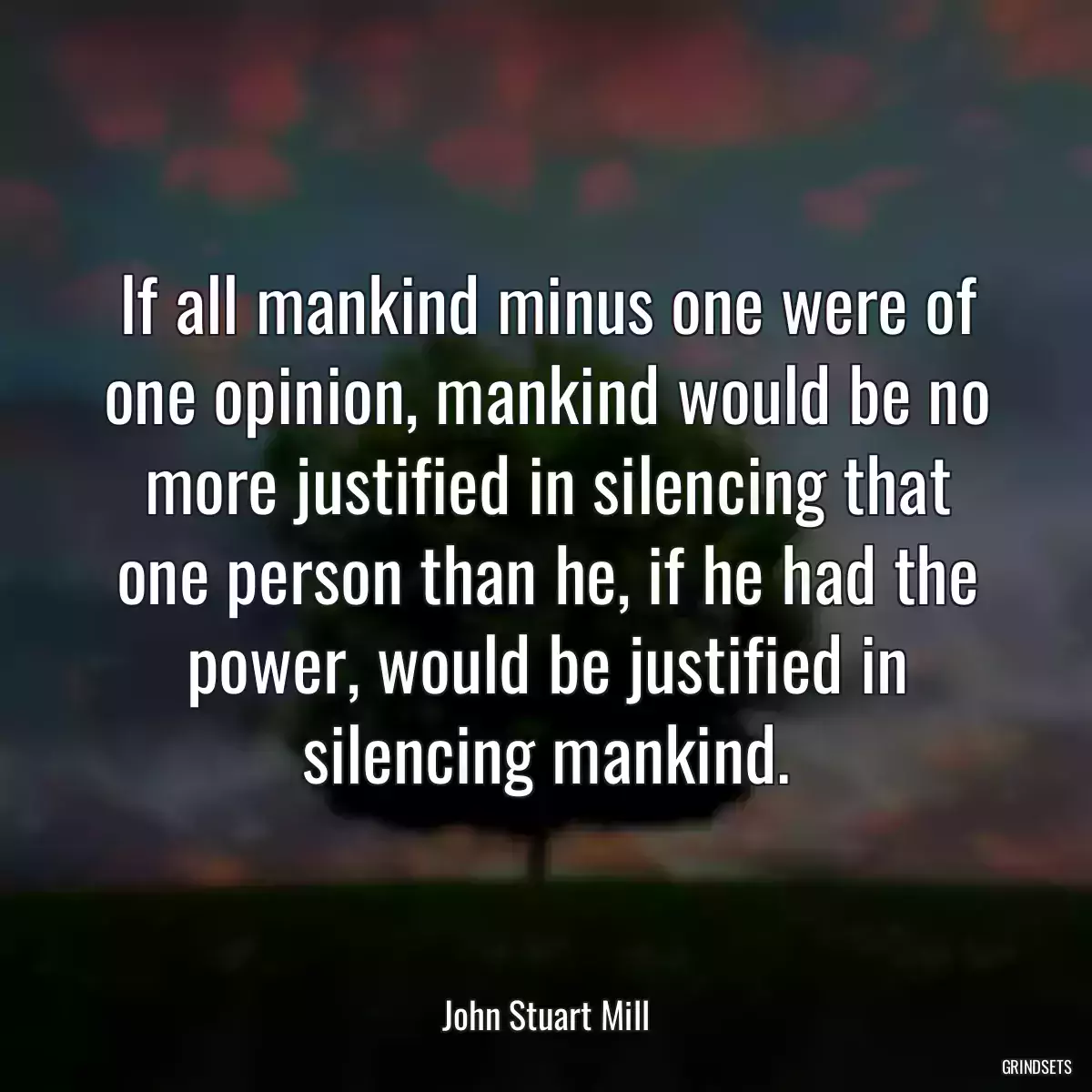
Quotes John Stuart Mill - page 4
Find dozens of John Stuart Mill with images to copy and share.

Strange it is that men should admit the validity of the arguments for free speech but object to their being "pushed to an extreme," not seeing that unless the reasons are good for an extreme case, they are not good for any case.
The price paid for intellectual pacification is the sacrifice of the entire moral courage of the human mind.
To think that because those who wield power in society wield in the end that of government, therefore it is of no use to attempt to influence the constitution of the government by acting on opinion, is to forget that opinion is itself one of the greatest active social forces. One person with a belief is a social power equal to ninety-nine who have only interests.
You may also like
There is never any fair and thorough discussion of heretical opinions... The greatest harm done is to those who are not heretics, and whose whole mental development is cramped and their reason cowed, by the fear of heresy.
A person should be free to do as he likes in his own concerns; but he ought not to be free to do as he likes in acting for another, under the pretext that the affairs of the other are his own affairs.
... what is really inspiriting and ennobling in the doctrine of freewill, is the conviction that we have real power over the formation of our own character; that our will, by influencing some of our circumstances, can modify our future habits or capabilities of willing.
The doctrine called Philosophical Necessity is simply this: that, given the motives which are present to an individual's mind, and given likewise the character and disposition of the individual, the manner in which he will act might be unerringly inferred: that if we knew the person thoroughly, and knew all the inducements which are acting upon him, we could foretell his conduct with as much certainty as we can predict any physical event.
The spirit of improvement is not always a spirit of liberty, for it may aim at forcing improvements on an unwilling people.

A man who has nothing for which he is willing to fight, nothing which is more important than his own personal safety, is a miserable creature and has no chance of being free unless made and kept so by the exertions of better men than himself.
The only freedom which deserves the name is that of pursuing our own good in our own way, so long as we do not attempt to deprive others of theirs, or impede their efforts to obtain it. Each is the proper guardian of his own health, whether bodily, or mental or spiritual. Mankind are greater gainers by suffering each other to live as seems good to themselves, than by compelling each to live as seems good to the rest.
Every man who says frankly and fully what he thinks is so far doing a public service. We should be grateful to him for attacking most unsparingly our most cherished opinions.
When the people are too much attached to savage independence, to be tolerant of the amount of power to which it is for their good that they should be subject, the state of society is not yet ripe for representative government.
Over one's mind and over one's body the individual is sovereign.
A people among whom there is no habit of spontaneous action for a collective interest - who look habitually to their government to command or prompt them in all matters of joint concern - who expect to have everything done for them, except what can be made an affair of mere habit and routine - have their faculties only half developed; their education is defective in one of its most important branches.
Pleasure and freedom from pain, are the only things desirable as ends.
To tax the larger incomes at a higher percentage than the smaller, is to lay a tax on industry and economy; to impose a penalty on people for having worked harder and saved more than their neighbors.
You may also like

Complete liberty of contradicting and disproving our opinion, is the very condition which justifies us in assuming its truth for purposes of action.